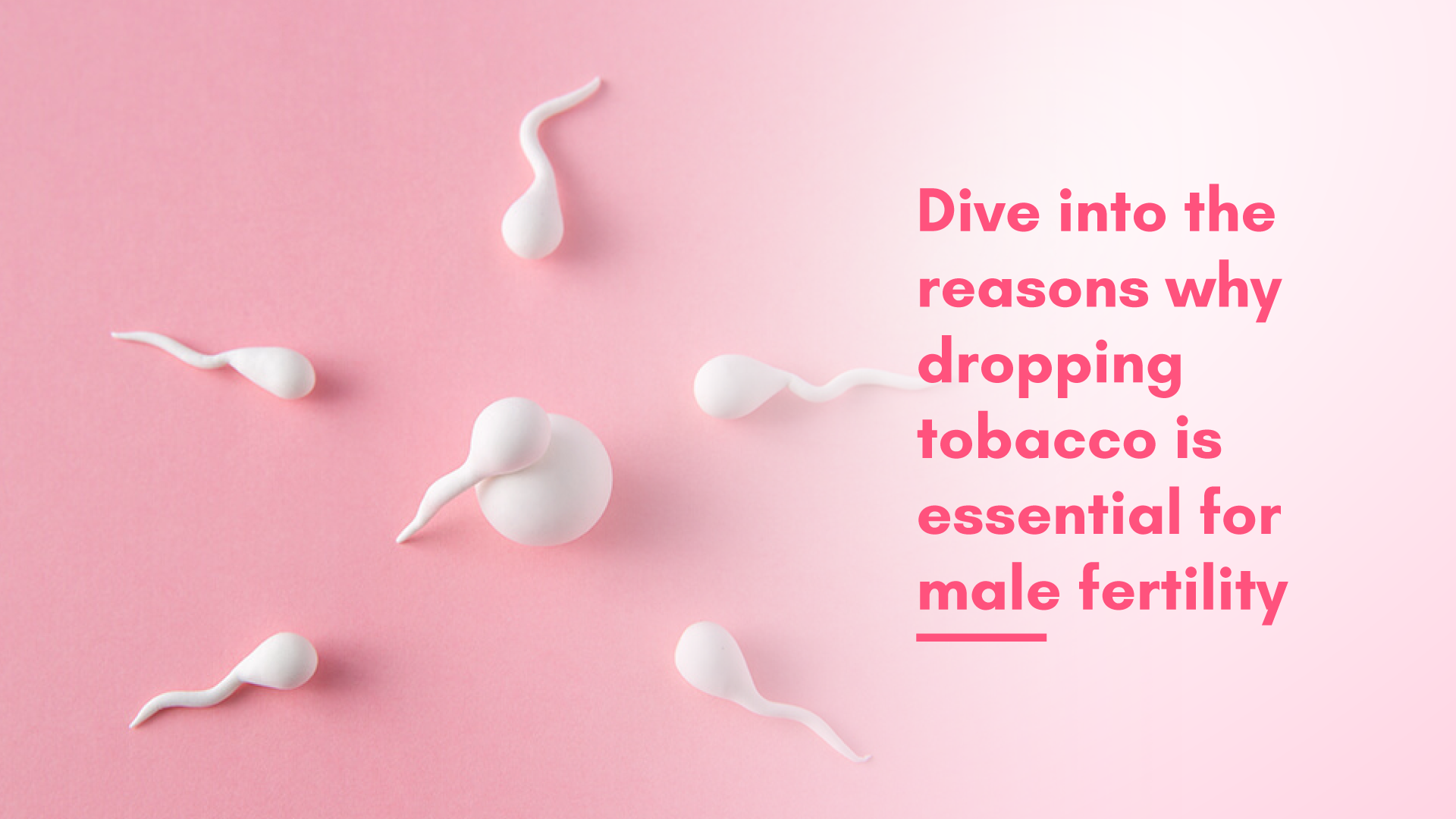Reviewed By: Dr. Nayani Enjamoori, fertility specialist at Ferty9 Fertility Center, Karimnagar
Fertility is a precious gift, a delicate process that brings life into the world. But for many men, this journey to fatherhood is hindered by a silent threat- tobacco. The decision to smoke might seem small, but it can cast a long shadow over your dreams of having a family. Let’s take a look at how tobacco affects male fertility and why quitting could be the most crucial choice you make for your future family.
Suggested read: Why Male Infertility Rates Are Rising in India?
How Does Tobacco Use Affect Fertility?
Tobacco use, whether it’s smoking cigarettes, cigars, or using other tobacco products, can adversely affect fertility. The toxic chemicals present in tobacco can interfere with the body’s natural reproductive processes, leading to various fertility-related issues.
Effects of Tobacco on Egg Quantity and Quality:
Tobacco use can negatively impact the quantity and quality of eggs. Smoking has been linked to a reduced ovarian reserve, meaning females who smoke have fewer eggs available for fertilisation than non-smokers, decreasing the chances of natural conception. Similarly, Tobacco smoke contains harmful chemicals that accelerate egg ageing, increasing the risk of chromosomal abnormalities. This increases the likelihood of miscarriage and congenital disability if fertilisation occurs, emphasising smoking cessation’s importance for fertility preservation and healthy conception.
Also Read: Tips for Improving Egg Quality in Female Infertility Treatment
Effects of Tobacco on Sperm Quantity and Quality:
Tobacco use can also have a detrimental effect on the quantity and quality of sperm. Smoking can result in a decrease in sperm count, as well as impaired sperm motility and morphology (the shape and structure of sperm). These factors can make it more challenging for the sperm to reach and fertilise the egg, ultimately reducing the chances of conception.
Related Read: Contraception Options for Males with Low Sperm Count
The Link Between Tobacco Use and Increased Infertility Rates
The link between tobacco use and increased infertility rates is well-established. Studies have shown that men who smoke are at a higher risk of having fertility problems compared to non-smokers. This is due to the numerous ways in which tobacco use can impact the male reproductive system, including:
- Reduced sperm quality and quantity
- Increased oxidative stress can damage sperm DNA
- Hormonal imbalances that can interfere with fertility
Furthermore, the adverse effects of tobacco use on fertility can be compounded by other lifestyle factors, such as poor diet, sedentary lifestyle, and stress.
Related Read: How does nutrition affect male fertility?
Pregnancy Complications Associated with Tobacco Use
Tobacco use not only affects fertility but can also have significant implications for pregnancy outcomes. Women who smoke may be more likely to experience pregnancy complications, such as:
- Increased risk of miscarriage
- Increased risk of excessive bleeding during pregnancy and delivery
- Preterm birth
- Ectopic pregnancy
- Stillbirth
- Low birth weight
- Congenital abnormalities (cleft lip and cleft palate)
- Smoking can damage a fetus’s lungs and brain development
Smoking-related complications can have long-lasting effects on the health and development of the child, underscoring the importance of quitting tobacco for both fertility and pregnancy health.
Also Read: Balancing Act: Tips for Maintaining Fertility While Pursuing a Fitness Passion
Improving Fertility: The Importance of Quitting Tobacco
Quitting tobacco is one of the most important steps one can take to improve fertility and increase the possibility of having a successful pregnancy. When a man quits smoking, he can experience a range of benefits, including:
- Improved sperm quality and quantity
- Reduced oxidative stress and DNA damage
- Restored hormonal balance
- Decreased risk of infertility
- Reduced risk of pregnancy-related complications
The timeline for these improvements can vary, but studies have shown that sperm quality can start to improve within a few months of quitting tobacco. Additionally, the longer a man remains tobacco-free, the more is the positive impact on his fertility and overall reproductive health.
The Benefits of Tobacco Cessation for Fertility and Pregnancy
Quitting tobacco not only improves male fertility but also has a positive impact on pregnancy outcomes. Some of the critical benefits of tobacco cessation for fertility and pregnancy include:
- Increased chances of conception
- Reduced risk of miscarriage and other pregnancy and delivery-related complications
- Improved foetal development and birth outcomes
- Lower risk of congenital abnormalities
By prioritising tobacco cessation, men can take an essential step towards improving their fertility and supporting their partner’s pregnancy journey.
Related Read: Know more about male infertility, diagnoses, treatment
Conclusion
Tobacco use is a significant contributor to male infertility, and the adverse effects of smoking on the reproductive system are well-documented. From reduced sperm quality and quantity to increased risk of pregnancy complications, the consequences of tobacco use can be far-reaching. However, the good news is that quitting tobacco can lead to substantial improvements in fertility and pregnancy outcomes.
Visit Our Clinic:
Fertility Clinic in Hyderabad
Fertility Clinic in Visakhapatnam
Fertility Clinic in Vijayawada
Fertility Clinic in Warangal
Fertility Clinic in Rajahmundry
Fertility Clinic in Tirupati
Fertility Clinic in Kurnool




